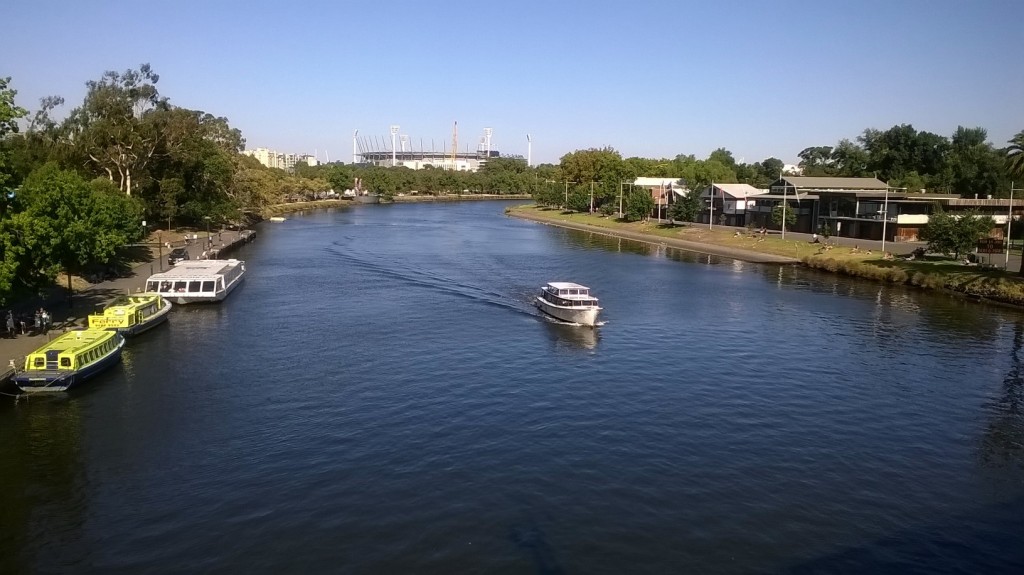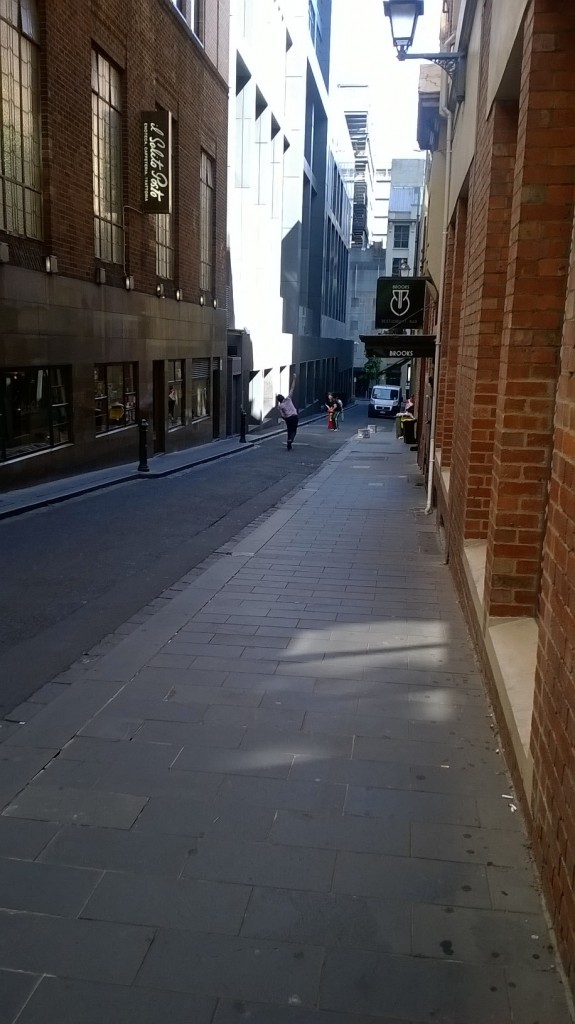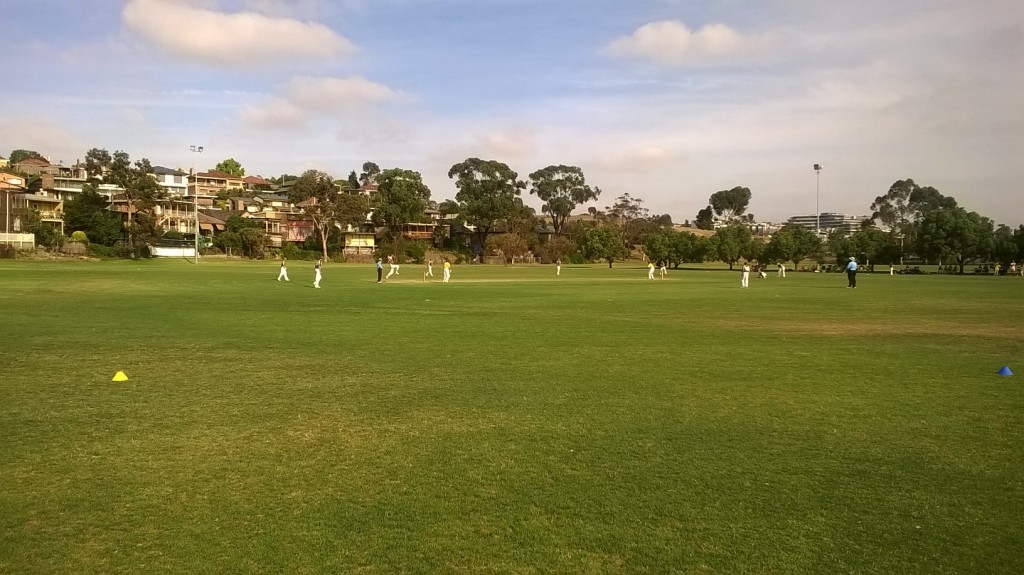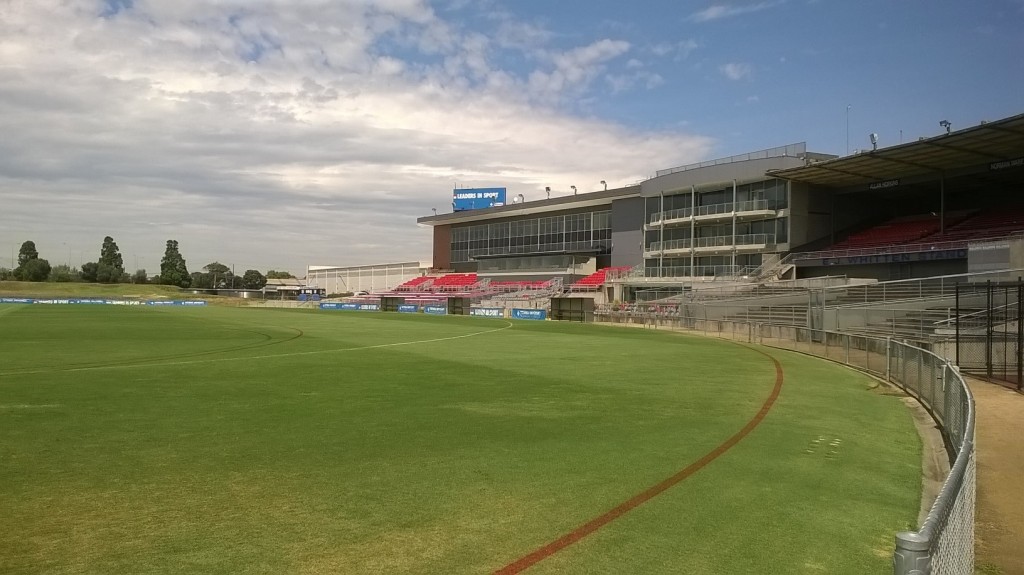Duncan Down Under: Researching Cricket in Australia 1
Dr Duncan Stone is in Australia for five months as a visiting scholar/researcher with Victoria University. During this time he will be delivering lectures and public seminars on his research interests of amateurism in elite sports, the social and cultural history of cricket and the continuing influence of the ‘gentleman amateur’, as well as mentoring post-graduate researchers. He will also be carrying out new research projects relating to Australian sport – most notably the different interpretations of Don Bradman’s Ashes winning ‘Invincibles’ tour of England in 1948. Duncan is a visiting research fellow at the University of Huddersfield, where he was awarded his doctorate in 2013.
An unfortunate victim of the Boxing Day floods my preparations for my trip to Australia were somewhat fraught, and rushed, in an attempt to clear the decks and deal with the most immediate issues. Bad as things were (I lost six years of research and numerous books and a number of rare artefacts) the news of floods and bushfires that greeted me on arrival put things into greater perspective. For all the terrible damage, at least the residents of Mytholmroyd and Hebden Bridge didn’t have to contend with crocs swimming in their backyards!
‘Such is life’ – as Ned Kelly once said – in Australia. Extremes of weather and prehistoric nature are par for the course, and the population and infrastructure are thus better prepared. Preparation is something the Australians do mightily well when it comes to sport. Perennial overachievers, the importance placed upon sport by seemingly all Aussies is reflected in my new hosts Victoria University’s (VU) intimate engagement with local communities and one professional sports club in particular: Australian Football League (AFL) club The Western Bulldogs.

Be it active participation, the provision of recuperative therapies (sport science etc.), opening up a variety of excellent facilities, or the dissemination of research; sport is clearly one of the best (and easiest) ways for a university to interact with the host community. Far from being an institution which locals feel is elitist or in some way aloof, or is simply full of ‘outsiders’, VU – as the University of Huddersfield has done in the past with the Cricket Research Centre and the Rugby League Archive – is more than a mere employer, or an important net contributor to the local economy.
It helps of course that sport, and especially cricket and AFL here in Victoria, is so popular. It may take longer to ascertain exactly why, but whereas the Premier League seems somewhat ‘force fed’ upon a British public, of whom only a tiny fraction ever go to games, Test cricket, the current one-day series against India and the Big Bash League (BBL) are attracting serious crowds at a time when the Australian Open Tennis tournament is also running. Sport in Australia is cheap, easily accessible and, consequently, culturally important to a far greater proportion of the population. Who would imagine stumbling across a game of street cricket in central London on a Saturday afternoon?

There is no hint of the inherent elitism of the MCC / ECB or the All-England club here. Modern and spacious stadiums allow organisers to charge very affordable rates to attend matches. Compare the price of a general admission ticket to the BBL (2.50GBP for an adult) to the upcoming 2016 T/20 Blast in England (10GBP for a child). This ratio of 4:1 is larger in terms of watching an Ashes series, which is still free to watch on Australian TV, and larger still in relation to the tennis (18GBP for an outer court pass for the whole of the Australian Open versus a minimum total of 373GBP to attend every day of Wimbledon). Ticket and satellite subscription demands dictate that cricket in particular remains an exclusive and expensive pastime in England.

Modernised stadiums capable of holding 100,000 fans, such as the Melbourne Cricket Ground (known locally as ‘the G’), do not exist in the UK since the re-modelling of the Olympic Stadium, and yet the powers that be make matters worse by planning to spend millions of pounds on grounds such as Lord’s without ever expanding the capacity enough to make access to all more feasible.
New stadiums frequently result in the demolition of the physical heritage represented by the old. Long gone – despite some clever architecture, sculpture and the re-naming of roads – are ‘The Baseball Ground’ (Derby County), Maine Road (Manchester City) and Filbert Street (Leicester City), but in Australia they have been either opened up for lower-level sports or the community.
The Whitten Oval is not only my new office and VU’s Community Sports Stadium, but also the Bulldogs Museum, which Professor Rob Hess, with the assistance of VU students, curated from scratch. Researching the club’s material culture and placing it in the context of the game and wider society has made an impact upon all concerned. As part of my role with VU I will be hoping to make my own contribution by assisting post-graduate students as well as delivering lectures to the faculty as a whole and the occasional public seminar.

I am, of course, also here to carry out some research whilst also working on a book based upon my PhD thesis. Hopefully, having squeezed in a stag do, which involved barefoot bowls and making my debut for a new cricket club in an Australia Day seven-a-side tournament, I’ll be getting plenty of work done.
History at Huddersfield utilises research-led teaching and a commitment to public engagement to ensure that what we do is both useful to society and beneficial to the employability of our students. We see our students as researchers – partners in the development of knowledge with academic staff, often through co-production of knowledge with community partners. For more information seehttp://www.hud.ac.uk/courses/full-time/undergraduate/history-ba-hons/ and http://www.hud.ac.uk/research/history/
You can email us at historyadmissions@hud.ac.uk